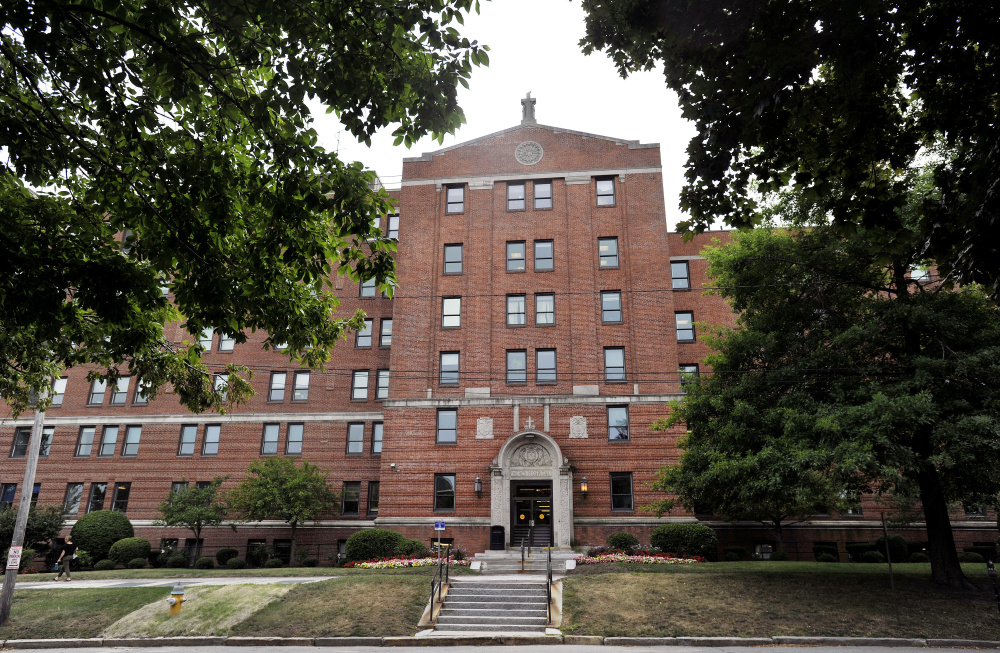Mercy Hospital is offering early retirement buyouts to 99 employees in an effort to trim expenses as part of its plan to consolidate operations at its Fore River complex, hospital officials confirmed Thursday.
Employees in specific job categories who have worked for Mercy for at least 10 years and are 60 or older are eligible for the buyout, which was described as a “one-time offer” in an email sent to workers Tuesday. Employees have 45 days to decide whether to accept the buyout, which would be a week’s pay for every year of employment, capped at 52 weeks.
Nurses and many other job categories are eligible for the buyouts, but doctors, nurse practitioners and physician assistants, nurse anesthetists, managers, and employees who work with patients who have eating disorders are not.
“This offer is a way for Mercy to reduce expenses consistent with our vision of the organization’s future, while offering eligible employees the opportunity to consider this offer that might enable them to accelerate their financial planning for retirement,” said the unsigned email from Mercy Hospital’s human resources department. The hospital has about 1,500 full-time employees.
Wayne Clark, a Mercy spokesman, said financial issues at the hospital were driving the decision, as was the overall effort to emphasize and strengthen the hospital’s primary care services.
“We need to be a little smaller going forward,” Clark said.
He said the hospital, which became part of Bangor’s Eastern Maine Healthcare Systems network in 2013, is continuing its efforts to close the State Street location and move all operations into the Fore River complex. He expects the move will be completed in about three years.
In 2014, Mercy announced an $80 million to $100 million expansion project at the Fore River complex that would add about 250,000 square feet of hospital space and nearly 170,000 square feet of new offices.
Clark declined to talk about the specifics of Mercy’s financial situation. The hospital operates with about $500 million in revenues, according to its 2014 IRS Form 990, a record that nonprofits must file publicly.
“We have a strong focus on our primary care and preventative care services, but we are seeing less demand for some of our services at the hospital,” Clark said. He declined to identify those services.
Mercy isn’t seeking a specific number of buyouts, Clark said. Once the buyout program is complete, managers will determine whether the jobs will remain vacant or be refilled, he said.
Andrew Coburn, a public health research professor at the University of Southern Maine, didn’t know about Mercy’s specific situation, but said that in general, hospitals are seeing fewer inpatients because more conditions are being treated in outpatient settings.
Coburn said Maine Medical Center is a short distance away and is better equipped to deal with patients who are the most severely ill, which could lead to reduced demand for inpatient beds at Mercy Hospital.
“Mercy has to be very strategic about what services they choose to emphasize,” he said.
Coburn said other financial forces also could be at play, including Maine’s failure to expand Medicaid, and health insurance companies attempting to wring more efficiencies out of the system.
Dr. Dora Anne Mills, vice president of clinical affairs at the University of New England, agreed that the lack of Medicaid expansion is hurting the bottom line of hospitals around the state, because they have to accept all patients, regardless of their insurance status.
“Hospitals across Maine have been put in a financial squeeze,” Mills said.
Clark said Maine’s decision to not expand Medicaid did not factor in the hospital’s early retirement offer.
Joe Lawlor can be contacted at 791-6376 or at:
jlawlor@pressherald.com
Twitter: joelawlorph
Send questions/comments to the editors.



